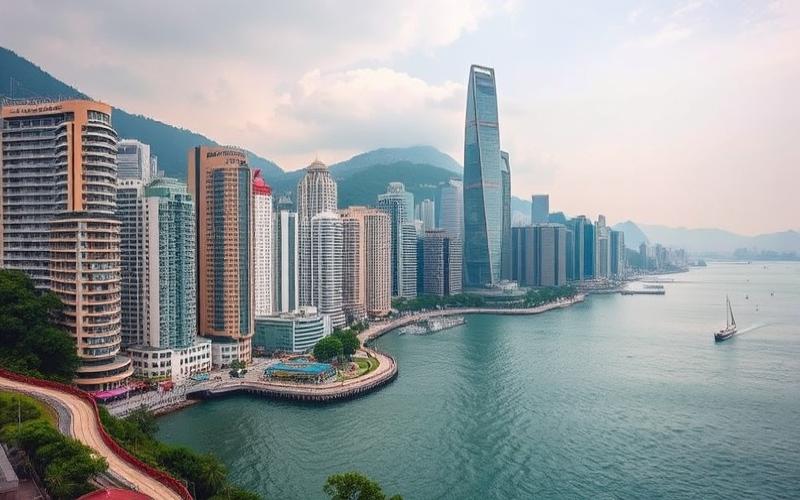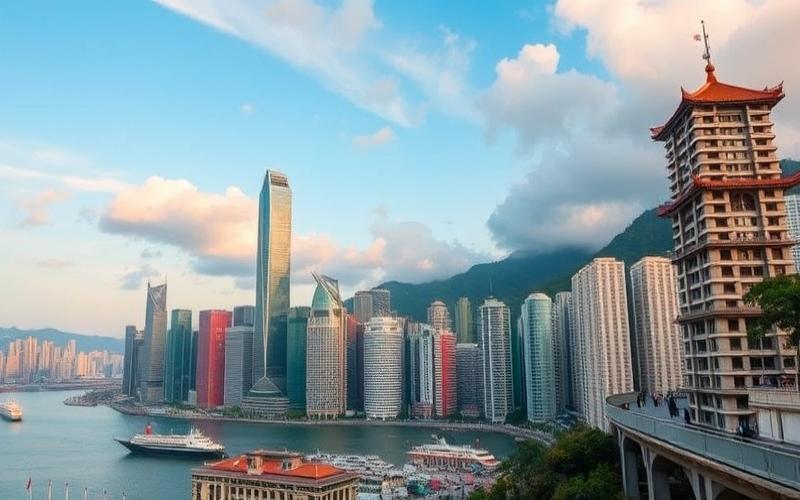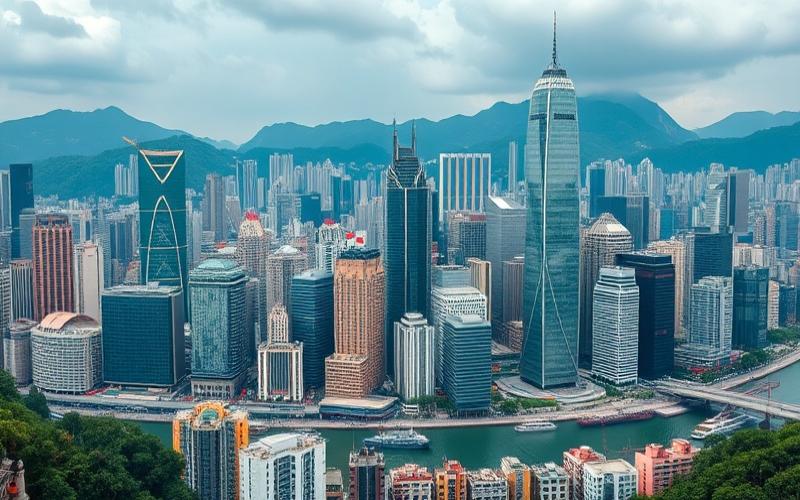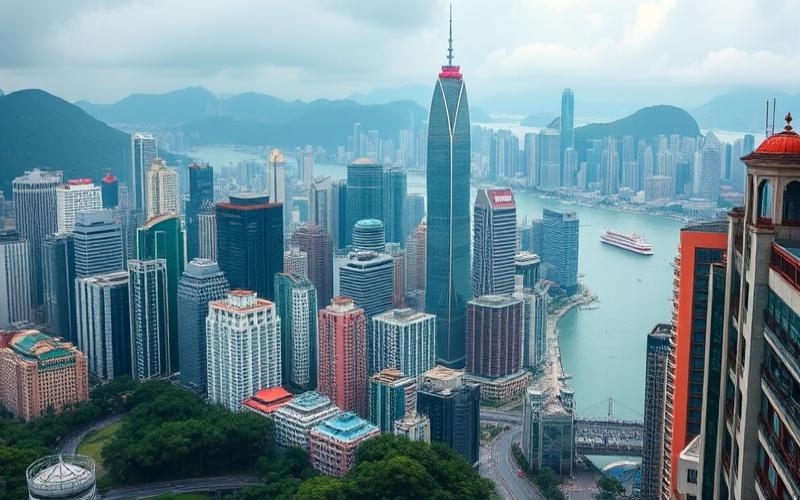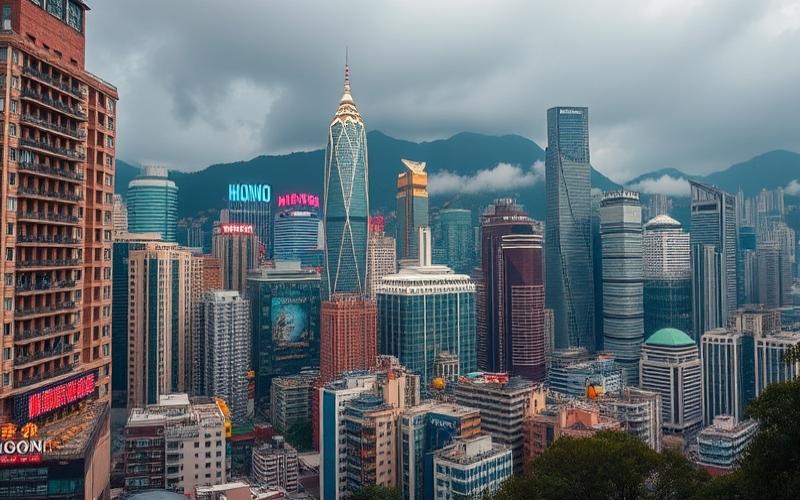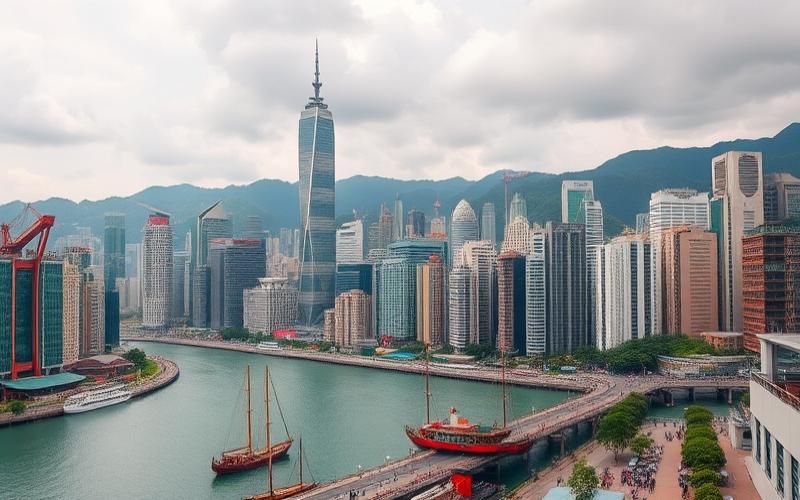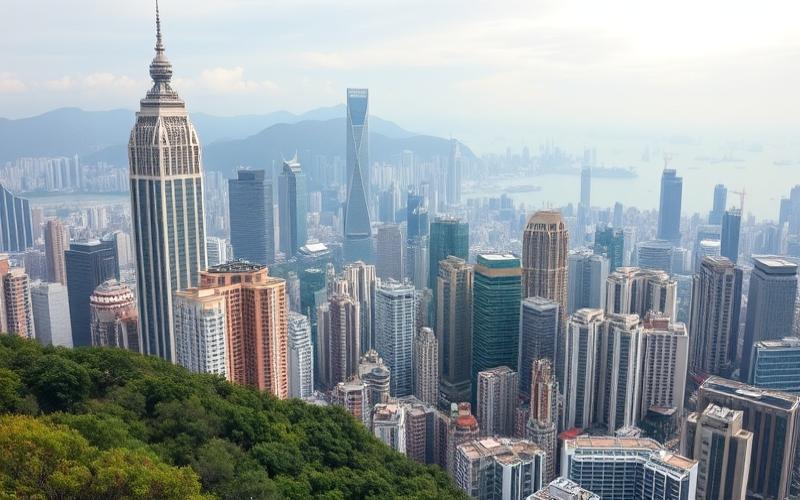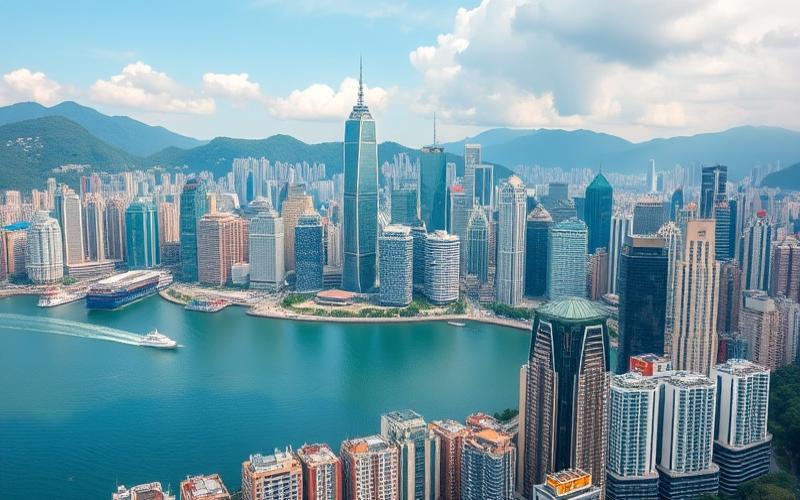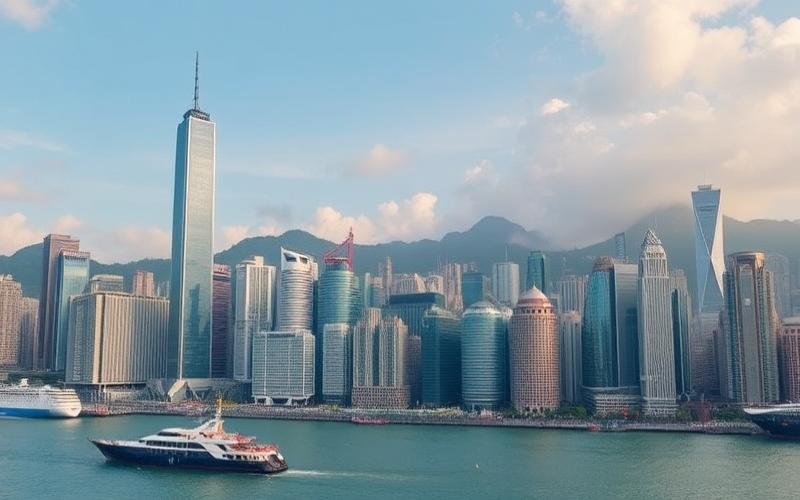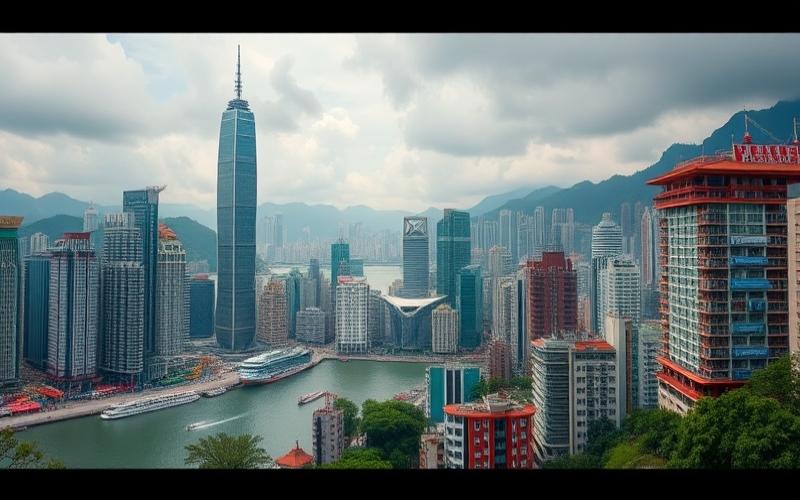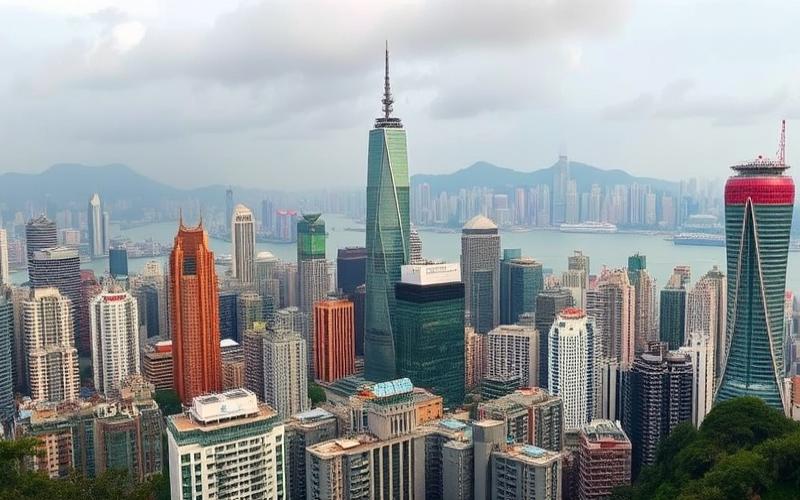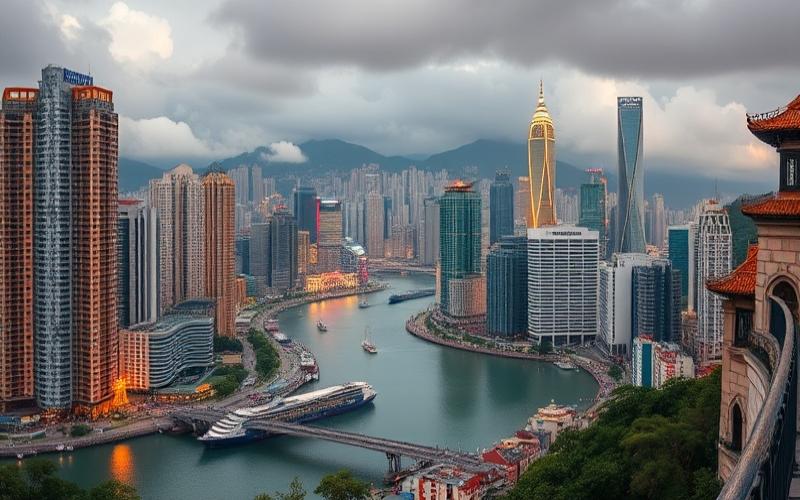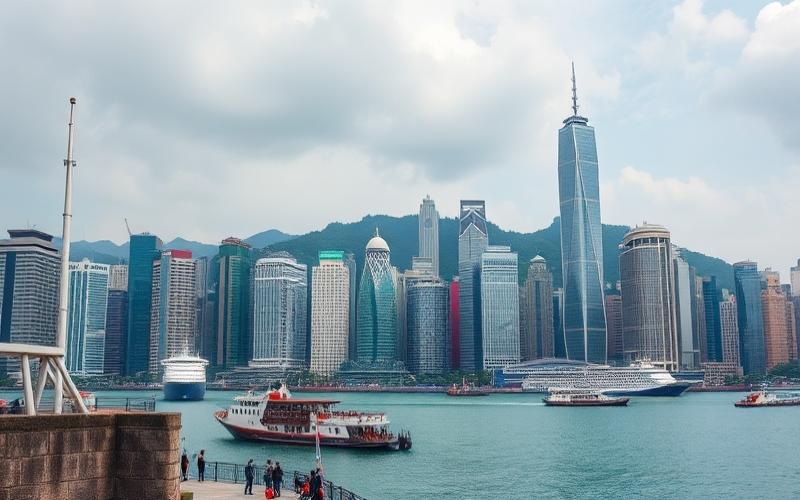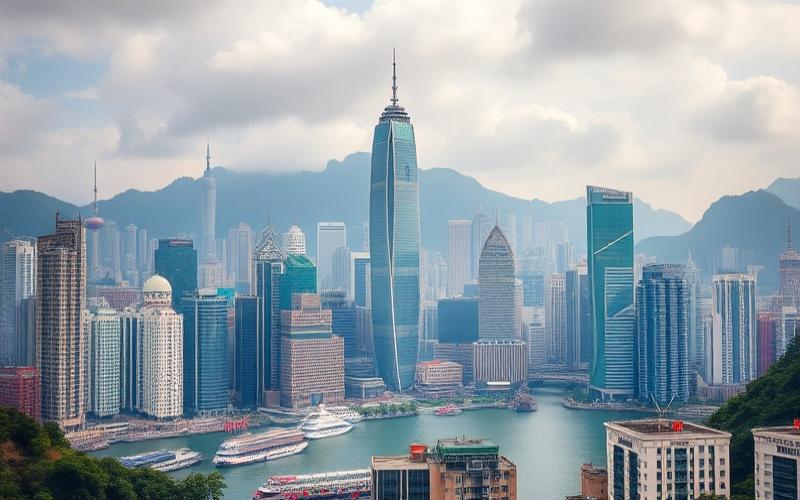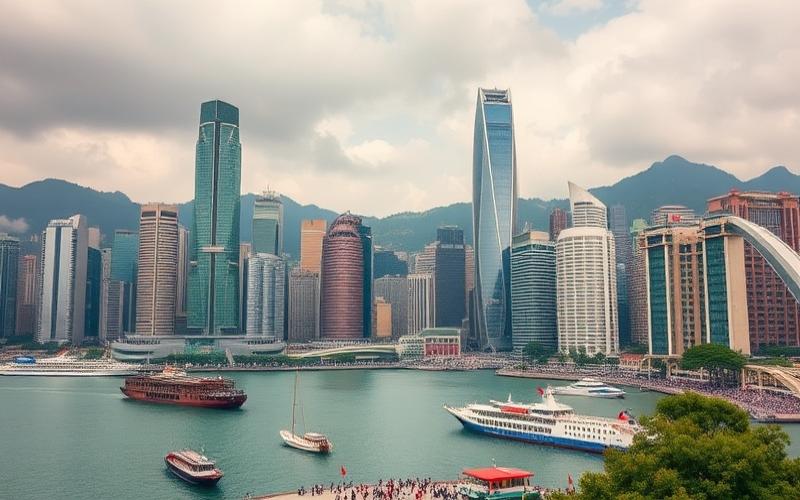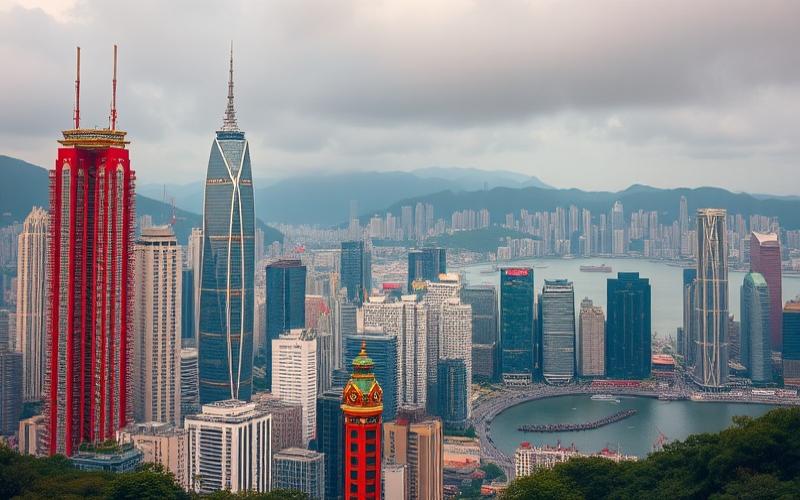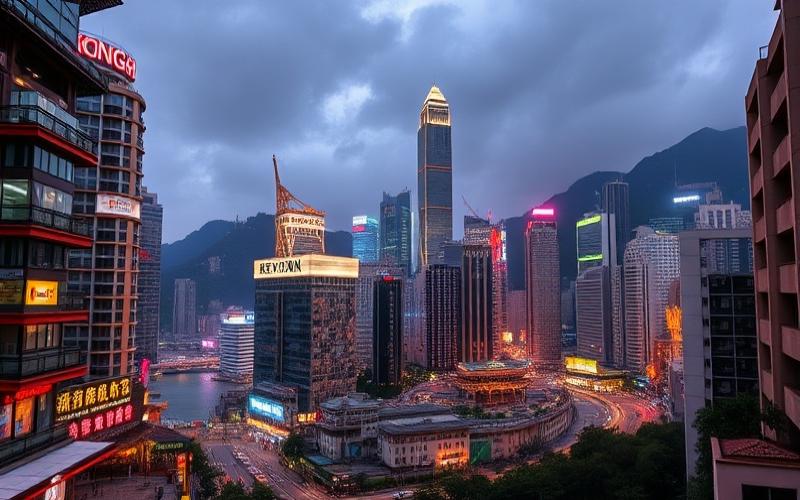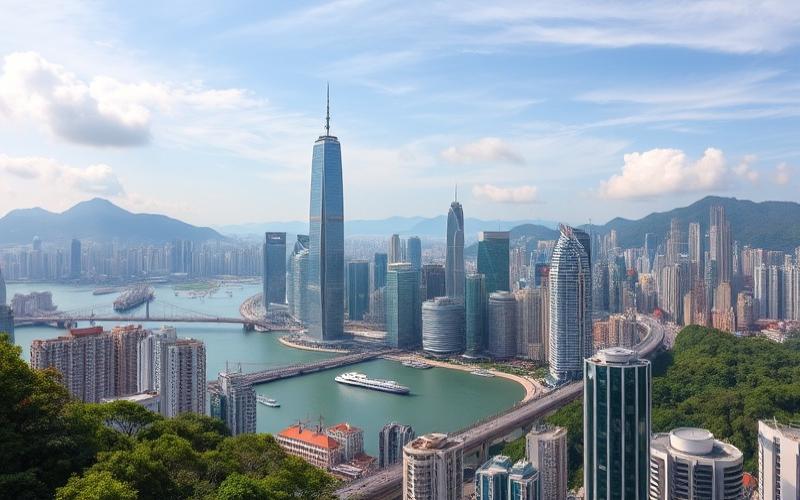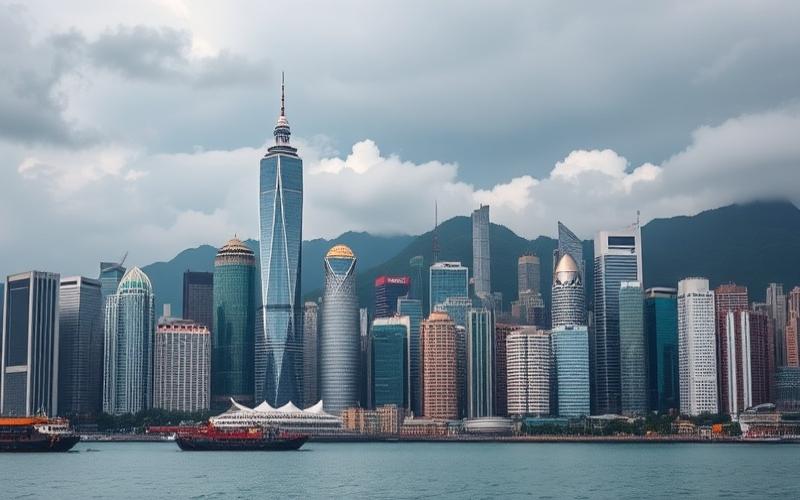
 Published on and written by Cyril Jarnias
Published on and written by Cyril Jarnias
Investing in Hong Kong Real Estate
Hong Kong, often considered one of the world’s most dynamic and prosperous cities, offers exceptional opportunities for real estate investors seeking to diversify their portfolios and capitalize on an ever-evolving market.
With its robust economy, favorable legal framework, and strategic position in Asia, investing in Hong Kong real estate is not merely a financial move, but privileged access to one of the planet’s major financial centers.
Good to Know:
However, like any investment, it comes with unique challenges, requiring a thorough understanding of local dynamics and current regulations to successfully navigate this competitive market.
Why Choose Hong Kong for Real Estate Investment?
Hong Kong offers numerous advantages for international real estate investors thanks to its economic dynamism, regulatory stability, and cultural appeal.
Economic Benefits
- Sustained GDP per capita growth and openness to the Asia-Pacific region.
- Currently declining mortgage interest rates, making financing more accessible.
- Prime location for international capital, with a real estate market historically considered resilient, despite recent correction cycles.
International Financial Center
Hong Kong holds a strategic position as a gateway between mainland China and the rest of the world.
Presence of numerous global financial institutions, ensuring increased liquidity and transparency in the real estate market.
Investor-Friendly Legal Framework
- Common law-based legal system, offering robust protection of property rights.
- Equal access for foreign investors: there are no major restrictions on property acquisition by non-residents.
Real Estate Market Growth and Stability
- Residential market characterized by great depth, with diverse inventory.
- Recent price stability observed, with forecasts of moderate fluctuation (+/- 5% in 2025), signaling a plateau after the correction in recent months.
- Anticipated clearer recovery starting in 2026, once inventory normalizes.
Modern Infrastructure
- State-of-the-art transportation network (subway, international airport, fast connections with mainland China).
- Business districts and luxury residences, cutting-edge urban facilities.
Cultural Attractions and Cosmopolitan Lifestyle
City renowned for its multiculturalism, art scene, Michelin-starred restaurants, and international events.
Presence of a significant expatriate community, strengthening rental demand in the high-end segment.
Tax and Regulatory Incentives
- No capital gains tax on real estate and no inheritance tax.
- Relatively low property taxes compared to other major global metropolises.
- Recent easing of purchase restrictions aimed at stimulating demand, including the removal of certain down payment requirements.
Growth Prospects and Potential Risks
| Growth Prospects | Potential Risks |
| Recovery expected from 2026 | Fluctuations linked to geopolitical tensions |
| Increased liquidity due to lower rates | Departure of skilled workers, impacting demand |
| Ongoing urban modernization | Sensitivity to global interest rate cycles |
| Continued appeal to expatriates | Possible volatility from new restrictions or political uncertainty |
Key Takeaway:
Hong Kong remains a major real estate hub thanks to the combination of economic strengths, an open regulatory environment, and sought-after quality of life. Recovery prospects are strong in the medium term, even though vigilance is required regarding external risks and the international economic climate.
Good to Know:
Hong Kong offers solid opportunities for real estate investors thanks to its exceptional economic advantages and status as a global financial center, attracting businesses and professionals from around the world. The legal framework is particularly welcoming to foreign investors, while the local real estate market benefits from stable growth supported by modern infrastructure. Additionally, its cosmopolitan lifestyle and rich cultural attractions make Hong Kong highly sought after by expatriates, thereby stimulating real estate demand. Benefits also include attractive tax incentives, such as relatively low corporate taxes. However, it is essential to consider potential risks, such as global economic fluctuations, and monitor growth prospects, because although the market is generally resilient, it is not immune to certain economic uncertainties.
Hong Kong Real Estate Price Overview
Current Hong Kong Real Estate Price Trends
Residential real estate prices in Hong Kong continue a downward trend that began in 2021, with a drop of approximately 30% from the peak recorded that year. In March 2025, prices declined for the fourth consecutive month, reaching their lowest level since July 2016. The average price for an apartment under 40 m² is now around 123,111 HKD/m² (approximately 15,725 USD/m²), an annual decrease of about 8.87%.
| Year | Average Price (HKD/m²) | Annual Variation |
| 2021 (peak) | ~175,873 | — |
| Q1-2024 | ~135,000 | -23% vs. peak |
| Q1-2025 | 123,111 | -8.87% |
Statistics for apartments Real estate agents anticipate moderate fluctuation (+/-5%) for the rest of the year depending on the pace of international monetary easing and regional macroeconomic stability. Demand could pick up if confidence returns or if the global context calms.
Key Takeaway:
The Hong Kong market is undergoing a major corrective phase that is reshaping its historical balances; it now combines widespread caution on the buyer side but maintains structural attractiveness in certain central districts or those undergoing urban renewal.
Good to Know:
In Hong Kong, the real estate market remains among the most expensive in the world, with an average price of about 120,000 HKD per square meter in 2023, a slight decrease compared to previous years due to the pandemic and global economic tensions. Districts such as Central and Mid-Levels continue to attract investors due to their prestige and proximity to financial centers, while neighborhoods like Tseung Kwan O and Kai Tak, rapidly developing, offer attractive opportunities at more affordable prices. Strong demand, fueled by local and international buyers, and land scarcity greatly influence prices, despite government efforts to stabilize the market through taxes on non-resident purchases and incentives for affordable housing construction. For investors, price fluctuations and political pressures require a cautious approach, although forecasts indicate a moderate recovery thanks to major infrastructure projects planned for the coming years.
Attractive Areas and Housing Types in Hong Kong
Central (Hong Kong Island)
Central is the financial and commercial heart of Hong Kong, known for its prestigious office buildings, multinational headquarters, and immediate proximity to financial institutions. This area primarily attracts wealthy expatriates, senior executives, and investors seeking an iconic address.
- Popular Housing Types: luxury apartments, penthouses, serviced residences.
- Ownership Demand: strong but selective, focused on high-end; rental demand remains supported by the influx of expatriates.
- Infrastructure & Amenities: direct access to MTR Central Station, shopping centers (IFC Mall), Michelin-starred restaurants, private clubs.
- Market Trends: high prices (often over 40,000 HKD/m²), moderate rental yield (~2–3%) but stable heritage value. New developments prioritize luxury and security.
- Transportation/Business/Commerce Attractiveness:
- Immediate proximity to the MTR network
- Pedestrian access to the business district
- Direct connection to shopping areas
| Area | Popular Housing Types | Buyer Profile | Indicative Price | Rental Yield |
|---|---|---|---|---|
| Central | Luxury Apartments & Penthouses | Expatriates / Senior Executives | >40,000 HKD/m² | ~2–3% |
| Kowloon | Modern Studios / Apartments | Young Professionals / Families | ~25–45k HKD/m² | ~3–3.5% |
| New Territories | Traditional Houses / Family Condos | Local/International Families |
Direct proximity to rapid public transportation (MTR) as well as to major financial/business centers significantly increases liquidity, long-term valuation, and rental potential in all these key areas. Neighborhoods combining maximum accessibility, modern infrastructure, and dense commercial offerings remain systematically favored by both local and international investors.
Good to Know:
In Hong Kong, Central is the financial heart with strong demand for luxury apartments due to its proximity to business centers and excellent transport links. Kowloon, known for its recent developments, particularly in Tsim Sha Tsui and Mong Kok, combines modernity and tradition, offering studios sought after by young professionals. The New Territories attract families with their more spacious traditional houses and expanding infrastructure including schools and shopping centers. The highly efficient public transport network, including the MTR, enhances these areas by facilitating access to urban amenities, positively influencing real estate prices. Recent trends show an increase in green construction and growing awareness of sustainability, further strengthening the appeal of these neighborhoods.
Acquiring Real Estate in Hong Kong as a Foreigner
Legal Rights and Restrictions for Foreigners
- Foreigners have the right to purchase real estate in Hong Kong, without nationality or residency limitations. There are no specific restrictions targeting foreigners for the acquisition of residential or commercial properties, except for certain public housing subject to specific rules.
- The law applicable to any real estate transaction is Hong Kong law, regardless of the buyer’s status.
- For certain properties (e.g., Home Ownership Scheme housing), restrictions or prior approvals may exist; therefore, it is important to verify the nature of the property before any acquisition.
Purchase Process: Key Steps
- Financial Pre-assessment
Preliminary evaluation of borrowing capacity and budget feasibility, including consulting mortgage tools or banks. - Property Search
Use of a reputable real estate agency (Century 21, Midland Realty, Nest Property) to identify properties and obtain advice on the local market. - Property Verification
Due diligence: verify that the seller is the true owner, that the property is free of encumbrances, and that there are no sale restrictions. - Offer and Negotiation
Presentation of a purchase offer, negotiation of price and conditions. - Signing the Provisional Agreement
Payment of an initial deposit (typically 5%). - Signing the Formal Agreement
A few weeks later, signing the final contract and payment of the additional deposit (approximately 5% more). - Completion and Registration
Payment of the balance (90%), payment of taxes and fees, registration of the transaction with the Land Registry, key transfer.
Taxes and Fees for Foreigners
| Type of Tax/Fee | Amount/Method |
|---|---|
| Stamp Duty | – Ad Valorem Stamp Duty (AVD): progressive rate based on value, up to 15% for foreigners. – Buyer’s Stamp Duty (BSD): 15% for non-residents. – Special Stamp Duty (SSD): up to 20% if quick resale (less than 36 months). |
| Legal Fees | 0.075% to 0.5% of the property price (negotiable). |
| Agency Fees | Generally 1% of the purchase price. |
| Registration Fees | Modest, but mandatory to formalize the transaction. |
Popular and Emerging Neighborhoods for Investment
- Central & Mid-Levels: Business district, strong rental demand, stability.
- Kowloon Tong: High-end residential, international schools.
- Wan Chai & Causeway Bay: Commercial dynamism, good rental yield.
- Sai Ying Pun & Kennedy Town: Emerging neighborhoods, rapid development, prices still affordable compared to the center.
- Tseung Kwan O & Yuen Long: Developing areas, attractive for first-time buyers and investors seeking medium-term growth.
Financing and Mortgages for Non-Residents
Foreigners can apply for a mortgage loan from local banks, but conditions are generally stricter than for residents.
- Often higher down payment (30% to 50% of the property price).
- Banks closely examine the buyer’s creditworthiness, income, and banking history.
- Interest rates and loan terms may vary; mortgage insurance may be required.
- It is recommended to consult multiple institutions to compare offers.
Advantages and Disadvantages of Investing in Hong Kong as a Foreigner
| Advantages | Disadvantages |
|---|---|
| No purchase restrictions for foreigners | Very high purchase price |
| Dynamic and liquid market | Heavy taxation for non-residents (additional stamp duties) |
| Capital gains potential and strong rental demand | Difficulty obtaining bank financing |
| Legal security and transaction transparency | Risk of market volatility |
| International asset diversification | Net yields often reduced by fees and taxes |
Practical Tips
- Always verify the legal nature of the property and the existence of any potential restrictions.
- Seek advice from a lawyer and an experienced local agency.
- Plan a generous budget to cover all ancillary costs, especially taxes specific to non-residents.
- Carefully compare neighborhoods according to investment objectives (appreciation, rental yield, personal use).
Good to Know:
Foreigners can purchase real estate in Hong Kong without legal restrictions, but must understand the complex purchase process which includes property search via real estate agents, signing a provisional agreement, and finalizing the purchase with a solicitor. Fees include a 15% foreign buyer tax and a standard stamp duty. Neighborhoods like Central or Admiralty are highly sought after, while Kowloon East is booming for investments. Mortgages for non-residents are possible, but often require a substantial down payment and higher interest rates. Investing in Hong Kong offers profitability opportunities in a dynamic market, although high prices and economic volatility can pose major challenges.
Disclaimer: The information provided on this website is for informational purposes only and does not constitute financial, legal, or professional advice. We encourage you to consult qualified experts before making any investment, real estate, or expatriation decisions. Although we strive to maintain up-to-date and accurate information, we do not guarantee the completeness, accuracy, or timeliness of the proposed content. As investment and expatriation involve risks, we disclaim any liability for potential losses or damages arising from the use of this site. Your use of this site confirms your acceptance of these terms and your understanding of the associated risks.



